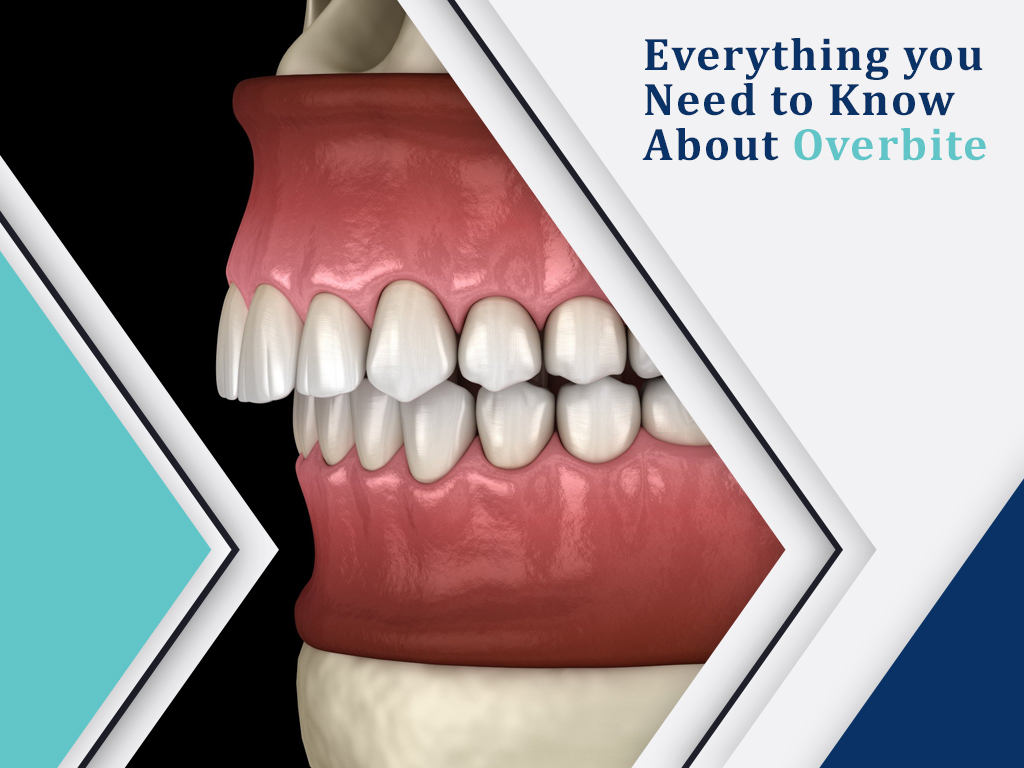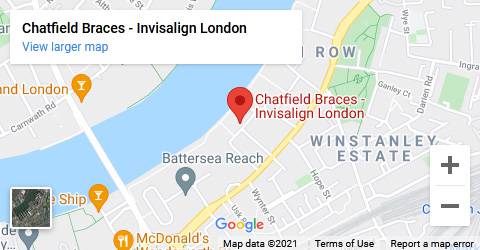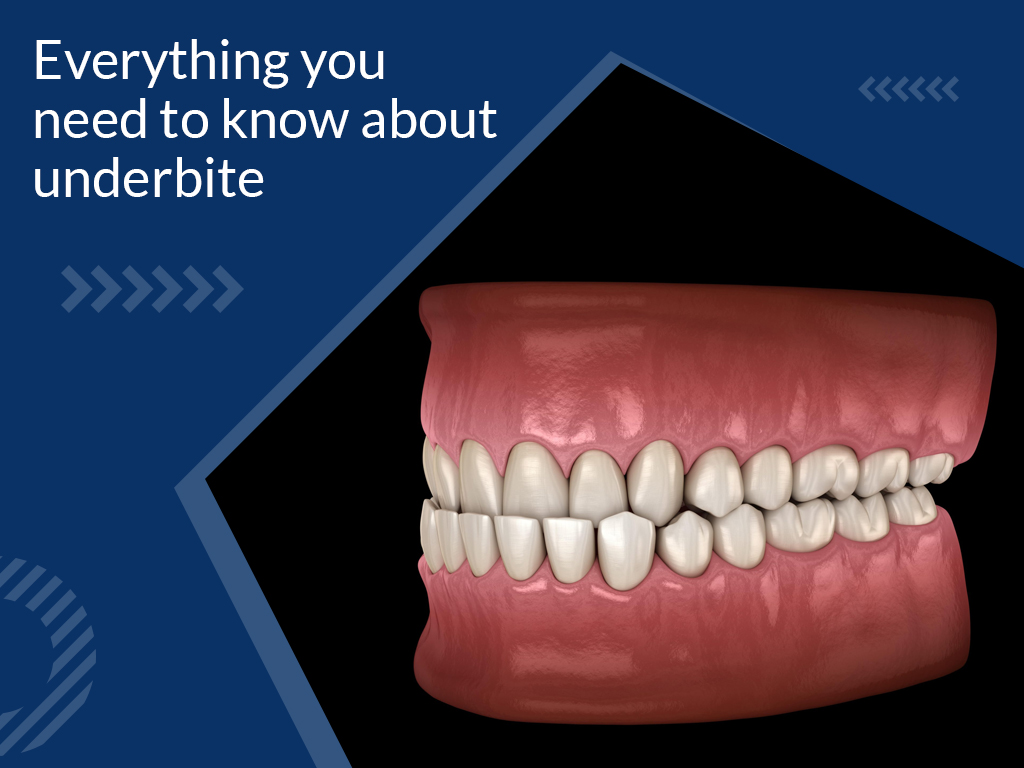
Everything you Need to Know About Overbite
Overbite is quite normal and common and might not need treatment except when it is severe and affecting your speech and eating. Overbite is a condition in which there is a vertical overlap or a horizontal gap between the bottom and the top front teeth.
Though this can cause overbite problems, it can be fixed by an orthodontist, and this article is going to guide you through everything you need to know about overbite.
This includes the causes, types, and methods of treatment.
What is an overbite?
An overbite is a horizontal gap or vertical overlap found between your top and bottom front teeth. It is normal and quite common for the upper teeth to be far over or in front of the lower teeth. This can lead to overbite problems.
Fortunately, dentists know how to fix this and overbite problems, and correction is the second most common reason people wear braces.
An overjet is a horizontal overbite; it makes the upper teeth protrude out of the mouth. When it is highly pronounced, it is known as “buck teeth”. Overjet can occur alongside an open bite; this creates a vertical gap between the upper and lower teeth.
Overbite is considered normal when the vertical overlap covers 30% of the teeth or is 2-4mm — when it is 4-6mm or more, it is known as a deep overbite or deep bite.
When the lower teeth are completely covered by the upper and even go into the lower gum, it is known as a severe overbite. An overbite can both be vertical or horizontal, meaning the protrusion of the upper teeth can cover the lower teeth.
Many people choose to live with their buck teeth and don’t treat them; an example is the late Freddie Mercury, a rock icon who kept and embraced his severe overbite.
Causes of an overbite
Genetics: Physical features like jaw shape and size can be inherited and passed down to generations. Some individuals are born with a small upper or lower jaw while others are born with an uneven jaw.
Thumb-Sucking: Sucking the thumb can cause buck teeth. When a child continues sucking past the age of 3 or 4 when the permanent teeth are developing, the pressure formed by sucking will make the teeth come out at an abnormal angle.
Pacifiers: Sucking on a pacifier can cause overbite the same way sucking the thumb does. Studies have associated the use of pacifiers with a higher risk of malocclusions than sucking the fingers or thumb.
Tongue-thrusting: Tongue-thrust causes overbite and also open bite; this occurs when the tongue presses too far forward in the mouth. This is common in children, but it can be carried into adulthood.
There are a good number of factors responsible for this condition, and some are tonsils or chronically swollen adenoids, stress can also cause this in adults as they thrust their tongue unknowingly during sleep.
Teeth problems: Teeth problems such as missing teeth, impacted teeth or extra teeth can cause buck teeth by changing the appearance of your front teeth. Missing teeth make your remaining teeth to shift over time, thus affecting the position of your front teeth.
Crowded teeth can also cause alignment problems because there will be no space to accommodate the teeth. Crowded teeth occur when you have impacted teeth or extra teeth.
Cysts and tumours of the jaw or mouth: These conditions can change the shape of your mouth and jaw and also affect the alignment of your teeth. This happens when there is a persistent growth or swelling in the jaw or upper part of your mouth.
This growth can be bony or made of soft tissue, and it can cause your teeth to shift forward. It also causes sores, lumps, and pains.
Save Upto £1230 offon Invisalign clear braces
*T&Cs apply
Appointments are available in the morning and evening for your convenience.
Different types of overbite
There are two main types of overbite, which are dental and skeletal. Irregularities in the jaw bone characterise the skeletal type while the dental type is characterised by teeth alignment problems such as overcrowding or pressure from thumb-sucking.
Overbite vs Underbite
Overbite happens when your upper jaw sits over your lower teeth while underbite occurs when your lower teeth sit in front of your upper teeth.
Underbite has its characteristic and issues and also different treatment methods.
Is overbite bad?
After diagnosing that you have an overbite, the next thing to do is find out whether you need treatment to correct it. Unlike underbite, not all overbites need treatment, the British Orthodontic Society has grading for orthodontic problems in children.
The table below will help you know if your problem is normal, mild, or severe and the type of treatment that might be required if at all you need to correct it.
| Types of Overbite | Size | Cause | Need Braces? | Need surgery? |
| Normal | 2-4mm | Mostly dental | Doubtful | Highly unlikely |
| Deep | 4-8mm | It can be dental or skeletal | Very likely | Unlikely |
| Severe | 9mm and above | It can be dental or skeletal | Yes | Likely |
There are a lot of reasons to fix an overbite, one of such is the health risks associated with this condition. The problems caused by an overbite depend on the severity of the condition.
Problems caused by overbite include:
- The disfigured appearance of the face
- Difficulty in chewing or biting
- Pain when chewing or biting
- Speech problems and impediments
- Difficult breathing and other breathing problems
- Damage to the teeth and gums
- Deficiency in chewing
- Facial pain
- Poor dental hygiene
- Halitosis due to breathing through the mouth
- The teeth will wear down quickly
If you are considering treating an overbite in your child, it is advisable to start when they are younger because the earlier the treatment and correction takes place, the better and more effective the result will be.
It can be quite difficult to treat an overbite in adults because their tooth roots and jaw bones are more firm and well developed than little children.
The process of treatment such as getting braces, surgery and the long-term use of retainers can be quite scary, but the benefits of these treatments are more than the fears and short-term discomfort caused by the treatment.
How to fix an overbite
The first thing you have to know when you have an overbite is that you don’t have to fix a normal overbite which range from 2-4mm. For those with deep bites and severe overbites, your dentist will tell you about the different ways of correcting it and will choose a suitable method for you.
The method of treatment used will depend on the cause and the severity of the overbite.
Save Upto £1230 offon Invisalign clear braces
*T&Cs apply
Appointments are available in the morning and evening for your convenience.
Overbite braces
The most common way of correcting overbite in the UK is through the use of braces when followed up with a retainer, this treatment is very effective, and the result is life-long. This treatment should take a year or two and sometimes more depending on the severity of the overbite.
You can also choose to go for clear braces, which are less noticeable and more common than the traditional metal braces. You can ask your dentist for pictures of overbites before and after braces to help you know the difference it can bring to your face, mouth, and smile.
This will give you the motivation to go through short-term discomfort.
Invisalign for braces
Invisalign are transparent braces which are hardly noticed, they are highly effective in correcting mild and moderate cases of overbite. They work by applying pressure to the teeth to move it to the desired position.
This transforms a deep overbite to the normal one, and every two weeks, you will be given a new set of aligners. With Invisalign braces, correcting overbite is quicker than the metal ones.
These braces are clear and go unnoticeable, thus preventing school bullying and name calling like “metal mouth”. As an adult, it gives you a more professional appearance, and you have the flexibility of removing it and cleaning your teeth better.
Overbite surgery
Jaw surgery or orthognathic surgery is needed in cases where the overbite is caused by skeletal issues like an underdeveloped lower jaw or mandibles. This surgery will help to improve the shape of your jaw and also your facial appearance.
In the UK, overbite surgery is free of charge for kids on NHS when it’s deemed necessary by doctors while adults with a severe overbite will be eligible for NHS treatment prices.
Surgical treatment of overbite involves one or more of the following:
- Adding plates around the jaw
- Inserting screws
- Repositioning the jaws
- Removing some teeth
Treatment for overbite is done in the mouth so that you won’t have any visible scars and after the surgery, the patient will have to stay in the hospital overnight and also stay out of school or work for 2-4 weeks.
Other orthodontic works are also carried out before and after the surgery to make sure the teeth align properly.
Retainer for the treatment of overbite
In some cases of overbite, it is possible to fix the problem using a removable retainer. It has the same mechanism of action as braces, and it slowly moves your teeth into the desired or proper position.
Your dentist will tell you if this is suitable in your case or not. If you get another treatment method for an overbite, it might still be necessary to wear a retainer to prevent your teeth from slipping back into the old position.
Summary: Before and after treatment
Before you correct your overbite problem, you must have noticed some unpleasant conditions like impaired facial appearance, headache, facial pain, and many more.
Also, due to more strain on them, your teeth will wear down quicker. After correction and you’ve achieved a normal overbite, you will notice a change in your facial appearance because your lower jaw would have been brought forward.
When you look at your before and after pictures, you will see the difference. And all the pains and discomfort you’ve felt will go away after treatment.
Save Upto £1230 offon Invisalign clear braces
*T&Cs apply
Appointments are available in the morning and evening for your convenience.
FAQs
How can you get rid of an overbite?
Correction of overbite is generally straightforward, and the major treatment methods used in correcting overbite are:
- Use of retainers
- Jaw surgery
- Overbite braces
Can Invisalign fix overjets and deep bites?
Yes, overbites can be fixed with braces that are removable and clear like Invisalign braces. It can treat moderate cases of overbite, and it is a little more expensive than metal braces.
Treatment is also quicker, and the braces are less noticeable.
Can an overbite be fixed naturally?
No, you cannot fix an overbite naturally, you will have to use braces or go through surgery. It is possible to prevent overbite caused by childhood habits like thumb-sucking, over-use of dummies, and chewing pencils.
Consult a dentist to know how to fix a severe overbite.
Can an overbite correction be gotten in the UK on the NHS
People under the age of 18 are eligible for overbite treatment on the NHS with braces and surgery. Approval will be determined based on the severity of the condition, and this has to be accessed by an NHS dentist.
Adults are likely to get treated on the NHS for overbite if it is severe and affects everyday activities like speaking and eating. A dentist has to access the degree of the overbite before deciding if you are eligible for an NHS treatment or not.
What is a normal overbite?
An overbite is considered normal when the upper front teeth stay around 2-4mm in front of the teeth or overhanging over the lower teeth. Studies have shown that average overbite teeth are 2.9 mm and approximately 8% of children have 6mm or more, which is classified as a deep or severe overbite.
Correction for overbite is normally recommended in overbite cases of more than 4mm in the United Kingdom.
If you want to treat your overbite or that of your child, feel free to contact us. We can handle all kinds of cases and even give you expert advice on the best treatment method for you or your child.
Recent Google Reviews

 Great service from the team. Needed some emergency filling and was given same day appointment.
The practice is clean and well kept. Dentist and dental nurse were awesome. I will be registering with the practice and use then for my routine check ups and any dental work that needs doing!
Great service from the team. Needed some emergency filling and was given same day appointment.
The practice is clean and well kept. Dentist and dental nurse were awesome. I will be registering with the practice and use then for my routine check ups and any dental work that needs doing!

 One of the greatest Invisalign provider in London, Dr Pakan was so honest and clear about the cost. I’ve got my Invisalign treatment with monthly plan it was around £25 a month. Reception was great, I was late during my treatment and Suze helped me to get the latest appointment to see the Dr Pakan.
One of the greatest Invisalign provider in London, Dr Pakan was so honest and clear about the cost. I’ve got my Invisalign treatment with monthly plan it was around £25 a month. Reception was great, I was late during my treatment and Suze helped me to get the latest appointment to see the Dr Pakan.

 I finally completed my treatment plan. So happy with my smile. Dr Pakan was amazing and done the best plan with Invisalign treatment for me. I've got all the payment on monthly basis with 0% APR. I didn't expect the cost to be easier than I thought. Suze was helpful and friendly at the reception.
I finally completed my treatment plan. So happy with my smile. Dr Pakan was amazing and done the best plan with Invisalign treatment for me. I've got all the payment on monthly basis with 0% APR. I didn't expect the cost to be easier than I thought. Suze was helpful and friendly at the reception.

 I have just finished my Invisalign course with Chatfield Dental Braces. I loved the fact that the braces were invisible and no one at work noticed I was wearing them. It was also very good to be able to take them out for cleaning and eating and for my wedding!
I have just finished my Invisalign course with Chatfield Dental Braces. I loved the fact that the braces were invisible and no one at work noticed I was wearing them. It was also very good to be able to take them out for cleaning and eating and for my wedding!

 Very friendly staff and service
Very friendly staff and service
Map Title
 Click To View Full Map
Click To View Full Map 020 71834041
020 71834041
 info@chatfieldbraces.co.uk
info@chatfieldbraces.co.uk



